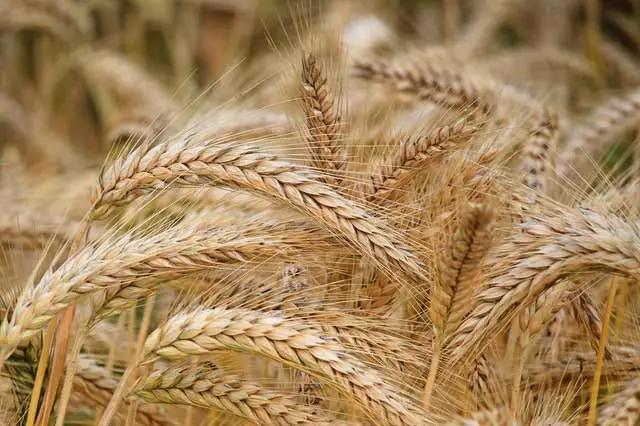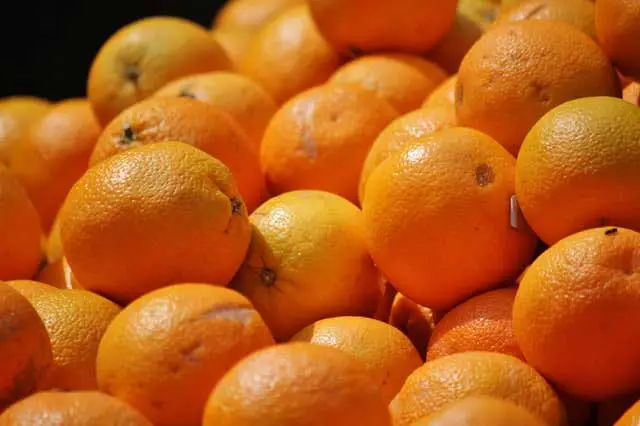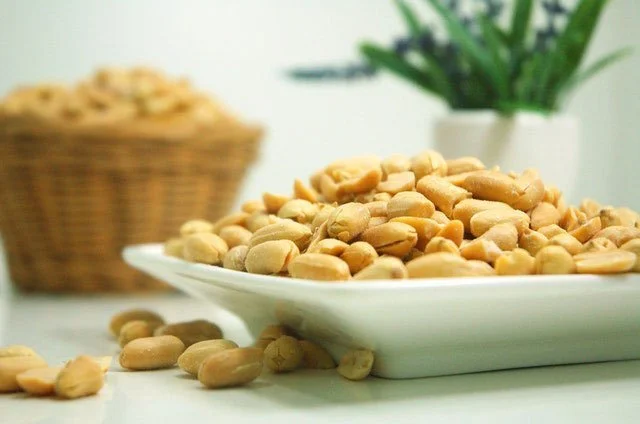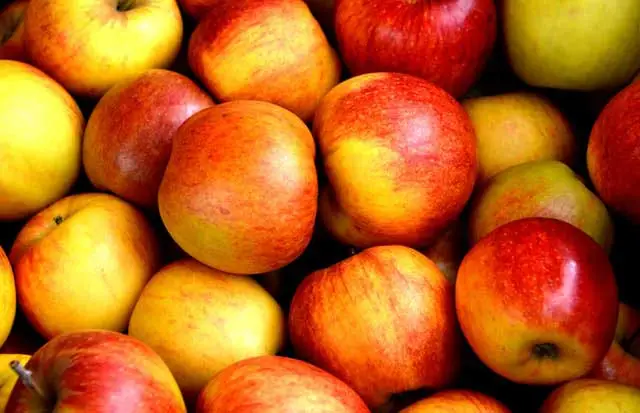People often think that they need to avoid fatty foods and unhealthy snacks when preparing for an examination, but this is not always the best approach. In fact, there are a number of brain-healthy foods that can help improve cognitive function and focus. The brain needs a lot of energy to carry out its tough work. It also needs nutrients to maintain its stability and proper function. For students, what the brain needs is to have more focus and concentration during times of exams and activities. We can obtain these necessities from the food that we eat, which then refers to a balanced and healthy diet.
Our brains have the innate potential to work and do things at an average level. But its maximum potential can also be harnessed when we need it in events like the entrance or board exams. We often do a lot of preparation, just like enrolling in a review center or scanning some past notes. But the part that does most of the busy work is the brain. The time will come when it is exhausted. That is why we tend to lose focus and attention on what we are doing. Thus, a balanced diet that includes foods that may help maintain memory, focus, and concentration is necessary.
9 Best Foods to Eat When Preparing for an Exam
To help your brain achieve its maximum performance, give it the highest quality fuel all the time, not just the day before a test. Here are the following foods that may help your brain function better than average during the review and the actual board exam.
Wholegrains

Whole grains such as whole cereals, wheat, whole grain bread, rice, and pasta help fuel the brain. The brain eats its food in the form of glucose, a monosaccharide. Without this simple sugar, our brain may find it hard to concentrate when we skip a carbohydrate meal. We lack energy and feel sleepy.
It is generally recommended to have at least two whole-grain meals a day. Try to eat at least one serving of whole-grain cereal in the morning, and another one in the late afternoon. Take a small bowl of rice or pasta for breakfast every day. Wholegrain foods, unlike other carbohydrate meals, release glucose slowly, which provides a steady supply of food for the brain. Whole grains such as brown wholegrain cereals, granary bread, rice, and pasta keep the brain mentally alert throughout the day.
Tomatoes

The human brain is composed of fats that are necessary for the brain to function properly. The fats in the brain can be protected by brain-protecting plant molecules called carotenoids. Tomatoes are one of the easiest and most economical ways to increase the levels of carotenoids in the body. It has two types: lycopene and beta-carotene. These two are powerful antioxidants that eliminate free radicals that could damage the brain. Lycopene also regulates the genes that influence brain growth, while beta-carotene helps provide continuous blood flow to the brain. Several studies link the importance of carotenoids to mental diseases like depression and Alzheimer’s. Aside from tomatoes, carotenoids can also be found in high levels in watermelon, sweet potatoes, and dark leafy vegetables.
Tomatoes are also a great source of zinc, which is an essential mineral for healthy brain function. The body does not produce zinc on its own, and it must be obtained from food and supplements. Zinc is critical to the formation of DNA and RNA in the cells of the brain.
Vitamin C-rich foods

Foods such as broccoli, oranges, lemons, and other citrus fruits are rich in Vitamin C, also known as L-ascorbic acid. Many studies found a correlation between Vitamin C to mental agility. Relatively high levels of vitamin C increase the mental agility of an individual, allowing them the ability to analyze situations faster and make better choices. It helps the brain to think faster in critical situations without compromising memory.
Vitamin C is also an antioxidant that helps remove free radicals in the brain. It is also essential for the production of serotonin, an important neurotransmitter. Without Vitamin C, the electrochemical signal would be traveling at a much slower rate. It is also involved in the production of melatonin, which helps regulate the sleep-wake cycle. There is some evidence that melatonin may help improve sleep quality. Some people believe that getting a good night’s sleep can help improve performance on exams.
Vitamin B-rich foods

Eating foods rich in vitamin B helps to improve your memory and cognitive function. Vitamins B1 (Thiamine), B3 (Niacin), and B9 (Folic acid) are some of the B vitamins that play crucial roles in brain function and development. Vitamin B1 helps in improving the delivery of nerve impulses inside the brain, making it more fired up, while vitamin B3 ensures efficient blood flow to the brain, thus sharpening the focus and concentration. Vitamin B9 helps improve memory, focus, and alertness. According to studies, these vitamins help in the maintenance of nerve cells in order for the brain to function properly, and at the same time, they prevent brain shrinkage.
Some good sources of vitamin B include eggs, dairy products, meat, poultry, fish, legumes, nuts, and seeds.
Pumpkin seeds

Pumpkin seeds help enhance an individual’s memory and uplift their mood. It contains zinc, which is a cofactor for most enzymes. Aside from zinc, it also contains magnesium, B-vitamins, and tryptophan, which is a precursor to the happy hormone called serotonin. It also helps in the production of melatonin, which regulates circadian rhythms and sleep-wake cycles. This can be included in your diet to help improve brain function.
Nuts

Nuts are a known source of vitamin E, which protects the brain. According to an American journal, intake of vitamin E helps prevent cognitive decline, making the brain sharper even at critical times. They are also rich in the B and D vitamins, which help with brain function.
A kind of nut called walnut is the top nut recommended for brain health. It has a significantly high level of DHA, which is a type of omega-3 fatty acid. As said earlier, fats are necessary for brain function. Eating nuts will provide DHA to the brain, thereby improving cognitive performance and, at the same time, age-related cognitive decline.
Fatty fish

A diet rich in fatty fish may improve cognitive function and protect the brain from age-related damage, according to a recent study. Researchers found that people who consumed fatty fish at least once a week had better mental performance and displayed less evidence of brain aging than those who ate fish less often. The study participants who ate fatty fish also had larger brain volumes in regions associated with memory and thinking skills.
Half of the fat that comprises the brain is made of omega-3. A controllable intake of fatty fish provides protection to the brain by providing the necessary insulation. A study also showed that having high levels of omega-3 increases the population of nerve cells in the grey matter of the brain. Gray matter contains most of the nerve cells that control decision-making, memory, and emotions.
Types of fatty fish commonly found in the Philippines include tuna ( tambakol or bariles), mackerel ( tanigue, tulingan, hulyasan), herring ( turay), sardines ( tamban, tawilis, salinyasi) and anchovies ( dilis), which are all good sources of omega-3 fatty acids.
Tea

According to studies, tea is also proven to have a good impact on the brain and cognitive health. It contains phytochemicals and antioxidants that remove free radicals that may damage the brain. Scientists found out that intake of green tea can prevent cognitive dysfunction and improve memory. The benefits of green tea may be attributed to its polyphenol content. Polyphenol is a compound that has numerous functions, and one of them is to scavenge free radicals in the brain. It is also believed that polyphenols in green tea may reduce the risk of Alzheimer’s disease.
Apple

Eating apples may increase the production of acetylcholine in the brain. It is an essential neurotransmitter, resulting in improved memory, motivation, attention, and sensory perception. It also reduces anxiety, making you calm during the examination. Additionally, apples may increase blood flow to the brain through their high levels of vitamin C and pectin. This helps improve memory and concentration, as well as prevent brain damage.
Conclusion
Eating the right foods can help improve your brain function and help you focus during exams. Brain foods mentioned above that are rich in antioxidants, Omega-3, and vitamins provide energy and aid in protecting against brain diseases. Since the brain does most of the work during a review and an exam, it needs to be supplemented and nurtured in order to stay focused and well.
By following a healthy diet and adding some of the best brain foods for exam takers, you can boost your performance and reduce stress levels. So, next time you’re studying for an important test, make sure to eat some of these foods to help give you an edge in your most important examination.
I really need your help Sir/Mam please send soft copy of csc professional reviewer thank you very much and God Bless
share me then a soft copy of cs-professional reviewer.
thanks.